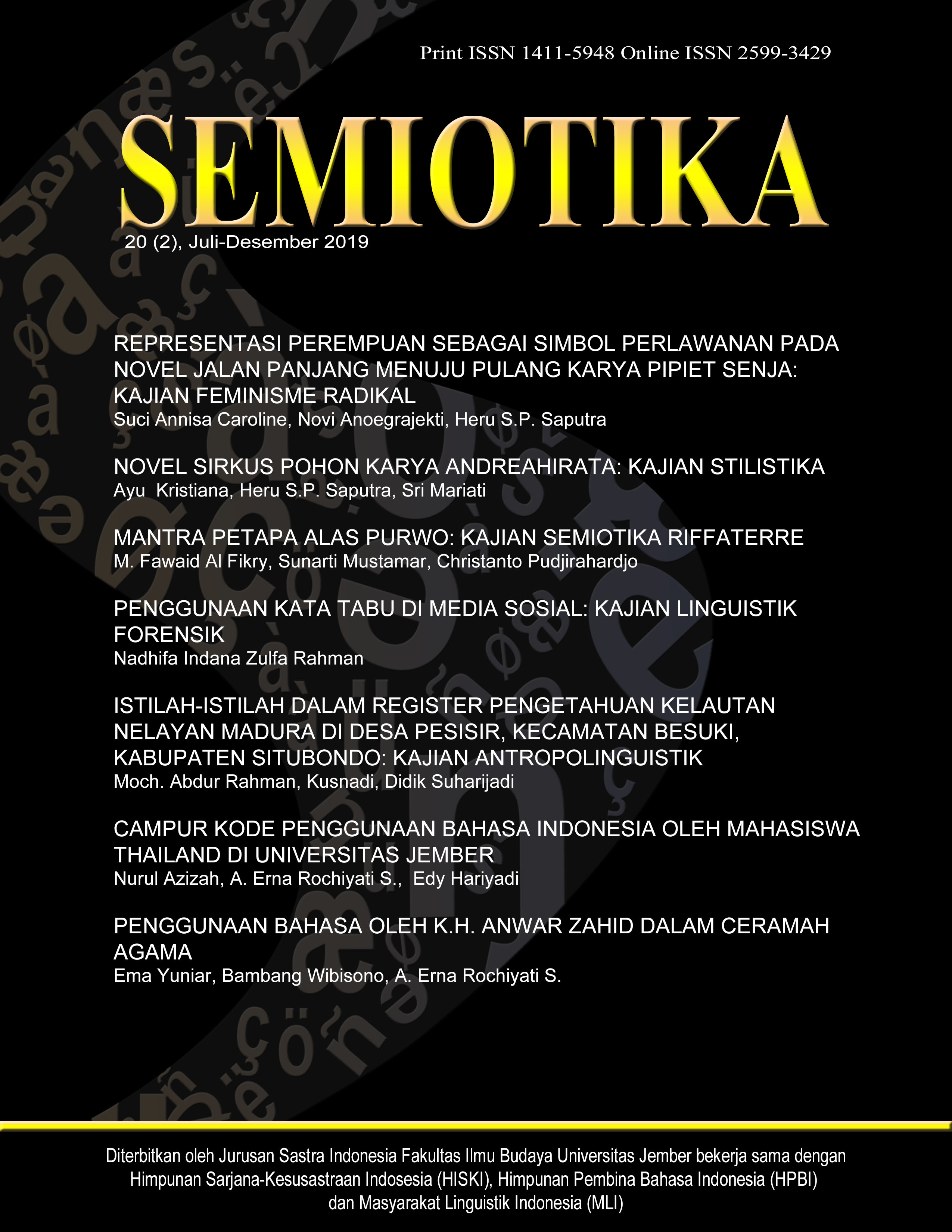PENGGUNAAN KATA TABU DI MEDIA SOSIAL: KAJIAN LINGUISTIK FORENSIK
DOI:
https://doi.org/10.19184/semiotika.v20i2.13823Keywords:
Criminal Code, defamation, forensic linguistics, ITE Law, netizen, social media, tabooAbstract
The freedom in social media communication have not been responded wisely by the citizen of the net (netizen). Sometimes while expressing themselves in the social media, netizens used the taboo words which potentially break the law. The problems chosen in this research is a type of taboo words used by the netizen and also whether these expressed words have a potential to violate the law. The method to collect the data is “Simak bebas libat cakap“(SBLC), it is a method where there is no active communication between interviewer and interviewee but it is only taken the data from internet, then to transcribe the taken data. The following step is analyzing data which used referential equivalent method, then the results of the analysis were presented informally. The findings showed that taboo words used in social media consisted of: (1) obscene words, (2) vulgar language, and (3) nick name and insult. These taboo words potentially violate the government regulation of the Republic Indonesia number 11 of 2008 concerning electronic information and transactions article 27 paragraph (3) and article 45 paragraph (1) as well as article 310 section (1) and article 311 section (1) of the Indonesian Criminal Code concerning defamation. Therefore, netizens must be careful in the way how communicate.
Criminal Code, defamation, forensic linguistics, ITE Law, netizen, social media, taboo
Downloads
Downloads
Published
Issue
Section
License
SEMIOTIKA has CC-BY-SA or an equivalent license as the optimal license for the publication, distribution, use, and reuse of scholarly work. Authors who publish with this journal retain copyright and grant the journal right of first publication with the work simultaneously licensed under a Creative Commons Attribution-ShareAlike 4.0 International License that allows others to share the work with an acknowledgment of the work's authorship and initial publication in this journal.
Attribution-ShareAlike
CC BY-SA


